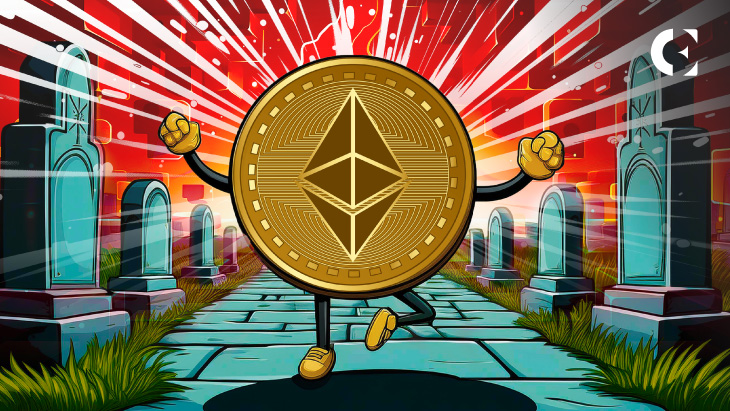- Justin Bons warns Layer 2 solutions are overtaking Ethereum.
- Bons criticizes Ethereum’s governance and cites centralization issues.
- He suggests that L2 dominance may signal the decline of Ethereum.
Cyber Capital founder Justin Bons shared a critical outlook on Ethereum’s future, claiming that the platform is “dying” while Layer-2 (L2) solutions gain traction. Bons contends that Ethereum’s inability to handle high transaction volumes and fees has pushed users towards L2s, creating what he calls a “parasitic relationship” where L2s thrive at Ethereum’s expense.
Bons argues that Ethereum’s fee revenue has plummeted since the implementation of EIP-4844, as L2s have begun capturing the majority of fees. This change has resulted in increased inflation within the Ethereum network, making it even more vulnerable.
Additionally, Bons points out that the rise of L2s has fragmented the Ethereum ecosystem, splitting liquidity and composability and hindering the seamless interaction of DeFi applications.
Centralization is another major concern for Bons. He observes that many top L2s have the potential to censor transactions or seize user funds, which goes against Ethereum’s original decentralized vision. He attributes this centralization to Ethereum’s governance model, which lacks on-chain voting and has allowed centralized control over the network’s development.
The founder of Europe’s oldest cryptocurrency fund also cautions that a return to Layer 1 (L1) scaling for Ethereum is no longer feasible without devaluing L2s. He suggests that if Ethereum were to achieve a major improvement in L1 scaling, it would make L2s unnecessary, causing their token prices to crash and leading to significant financial losses for investors. Bons asserts that this would be opposed by Ethereum’s leadership, which he accuses of favoring L2s over the network’s long-term health.
Bons’ critique paints L2s not as extensions of Ethereum but as rivals or “vampires” draining Ethereum’s lifeblood. He is optimistic about the future of certain L2s but remains doubtful about Ethereum’s prospects. He believes Ethereum’s leadership has “sold out” to venture capitalists who profit from L2s, turning the platform into a vehicle for rent-seeking instead of a public good.
Disclaimer: The information presented in this article is for informational and educational purposes only. The article does not constitute financial advice or advice of any kind. Coin Edition is not responsible for any losses incurred as a result of the utilization of content, products, or services mentioned. Readers are advised to exercise caution before taking any action related to the company.






